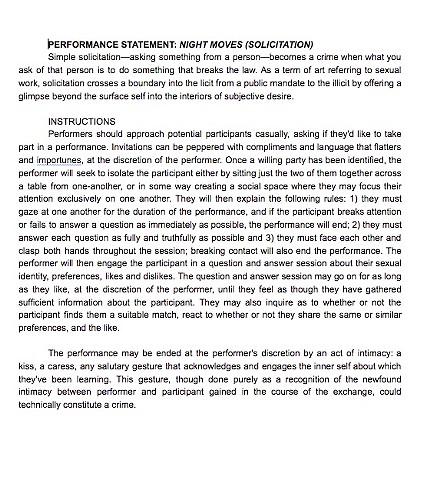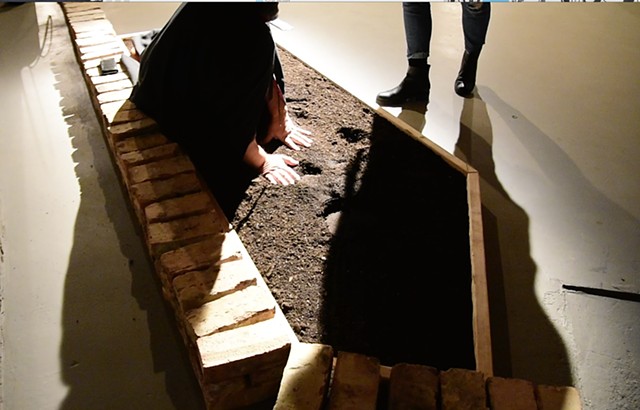Solicitation
Written initially as a protest-score response to SESTA-FOSTA, "Night Moves: Solicitation" offers a performance portrait in music and the seduction of transactional interaction's enduring allure. Music accompaniment by Black Friars Social Club, with Michael Workman, Mike Anestor and David Perales Albert. Performance is part of the lineup for Propositional Worlds at SITE/less, a presenting partner of the Museum of Contemporary Art Chicago's program, In Progress: Perfect Worlds/Propositional Attitudes.
PERFORMANCE STATEMENT: NIGHT MOVES (SOLICITATION)
Simple solicitation—asking something from a person—becomes a crime when what you ask of that person is to do something that breaks the law. As a term of art referring to sexual work, solicitation crosses a boundary into the licit from a public mandate to the illicit by offering a glimpse beyond the surface self into the interiors of subjective desire.
INSTRUCTIONS
Performers should approach potential participants casually, asking if they'd like to take part in a performance. Invitations can be peppered with compliments and language that flatters and importunes, at the discretion of the performer. Once a willing party has been identified, the performer will seek to isolate the participant either by sitting just the two of them together across a table from one-another, or in some way creating a social space where they may focus their attention exclusively on one another. They will then explain the following rules: 1) they must gaze at one another for the duration of the performance, and if the participant breaks attention or fails to answer a question as immediately as possible, the performance will end; 2) they must answer each question as fully and truthfully as possible and 3) they must face each other and clasp both hands throughout the session; breaking contact will also end the performance. The performer will then engage the participant in a question and answer session about their sexual identity, preferences, likes and dislikes. The question and answer session may go on for as long as they like, at the discretion of the performer, until they feel as though they have gathered sufficient information about the participant. They may also inquire as to whether or not the participant finds them a suitable match, react to whether or not they share the same or similar preferences, and the like.
The performance may be ended at the performer's discretion by an act of intimacy: a kiss, a caress, any salutary gesture that acknowledges and engages the inner self about which they've been learning. This gesture, though done purely as a recognition of the newfound intimacy between performer and participant gained in the course of the exchange, could technically constitute a crime.

